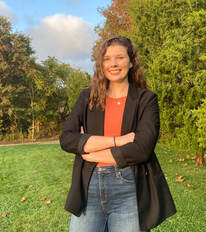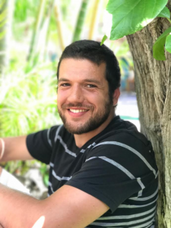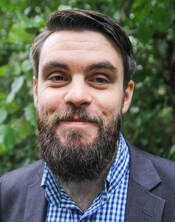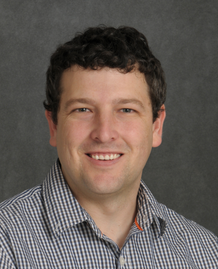Stony Brook University Aging Interest Group
Organizers

Sean Clouston - https://publichealth.stonybrookmedicine.edu/faculty/seanclouston
Dr. Clouston is a neuroepidemiologist who takes a life course approach to understanding the social determinants of population aging. His longitudinal work has focused on integrating causal analytic techniques including specifically regression discontinuity designs for use in life course and longitudinal settings. Dr. Clouston finished his BA/BSc in Sociology and Mathematics at the University of Victoria and his MA in Sociology/Social Statistics at McGill University. During his doctoral work, Dr. Clouston examined historical changes in disease patterns and their relation to social inequalities. During his postdoctoral work, Dr. Clouston worked to examine social context in relation to cognitive aging and during this time helped to develop the Integrative Analysis of Longitudinal Studies on Aging program . Recently, this work developed novel methods being refined and validated in a social context. Additionally, soon after arriving at Stony Brook University Dr. Clouston developed an aging study within the World Trade Center responder population to examine the role of life course traumas in faster rates of cognitive and physical aging. He oversees a structural/functional imaging research program that emerged from that program. As part of that work he has two supplemental awards examining peripheral biomarkers and neuroinflammation in the cohort. His postdoctoral students have been awarded the NIH Loan Repayment Programs funding, Disparities Supplement Awards, NARSAD training award, RCMAR fellowship, and the Butler-Williiam's fellowship. He hopes to continue to examine the multiple processes that link fundamental social causes to more rapid aging and increased risk of mortality.
Lauren Richmond - http://cogagingandmemorylab.weebly.com/
Dr. Lauren Richmond is the director of the Cognitive Aging & Memory (CAM) lab at Stony Brook University. She received her B.A. and M.A. from Marist College and Ph.D. from Temple University. Prior to joining the Psychology Department at Stony Brook. Dr. Richmond completed a postdoctoral fellowship in the Department of Psychological and Brain Sciences at Washington University in St. Louis. In her research, Dr. Richmond examines memory performance across the lifespan and is particularly interested in examining memory and performance of memory-based activities in everyday contexts. Dr. Richmond is also interested in identifying and developing strategies and interventions that can improve older adults' ability to perform memory-based activities in everyday life.
Dr. Lauren Richmond is the director of the Cognitive Aging & Memory (CAM) lab at Stony Brook University. She received her B.A. and M.A. from Marist College and Ph.D. from Temple University. Prior to joining the Psychology Department at Stony Brook. Dr. Richmond completed a postdoctoral fellowship in the Department of Psychological and Brain Sciences at Washington University in St. Louis. In her research, Dr. Richmond examines memory performance across the lifespan and is particularly interested in examining memory and performance of memory-based activities in everyday contexts. Dr. Richmond is also interested in identifying and developing strategies and interventions that can improve older adults' ability to perform memory-based activities in everyday life.
Stacey Scott - https://you.stonybrook.edu/scottlab/
Dr. Stacey Scott is director of the Stress, Emotions, & Health lab at Stony Brook University. She received her B.S. from Viterbo University and M.A. and Ph.D. from the University of Notre Dame. Dr. Scott completed postdoctoral research positions in the School of Psychology at Georgia Institute of Technology and Center for Healthy Aging at Pennsylvania State University. Prior to joining the Psychology Department at Stony Brook, Dr. Scott was an assistant professor in the School of Aging Studies at the University of South Florida. In her research, Dr. Scott examines the effects of everyday stressors, major life events, and chronic strains on emotional well- being, cognitive function, and physical health across the lifespan.
Dr. Stacey Scott is director of the Stress, Emotions, & Health lab at Stony Brook University. She received her B.S. from Viterbo University and M.A. and Ph.D. from the University of Notre Dame. Dr. Scott completed postdoctoral research positions in the School of Psychology at Georgia Institute of Technology and Center for Healthy Aging at Pennsylvania State University. Prior to joining the Psychology Department at Stony Brook, Dr. Scott was an assistant professor in the School of Aging Studies at the University of South Florida. In her research, Dr. Scott examines the effects of everyday stressors, major life events, and chronic strains on emotional well- being, cognitive function, and physical health across the lifespan.
Dylan Smith - https://publichealth.stonybrookmedicine.edu/faculty/DylanSmith
Dr. Smith’s research interests include the use of social cognitive principles to study resilience and adaptation in the context of aging-related disability and chronic illness. As part of this research, he uses real-time measurement methods in micro-longitudinal designs to examine the complex interplay between social and cognitive factors, physical and emotional symptoms, and health and well-being. He also explores how cognitions and beliefs about health and physical functioning affect quality of life. Current projects include a longitudinal study of racial/ethnic disparities in people with chronic pain, and a study of risk and resilience factors in Alzheimer’s caregivers.
Dr. Smith’s research interests include the use of social cognitive principles to study resilience and adaptation in the context of aging-related disability and chronic illness. As part of this research, he uses real-time measurement methods in micro-longitudinal designs to examine the complex interplay between social and cognitive factors, physical and emotional symptoms, and health and well-being. He also explores how cognitions and beliefs about health and physical functioning affect quality of life. Current projects include a longitudinal study of racial/ethnic disparities in people with chronic pain, and a study of risk and resilience factors in Alzheimer’s caregivers.
Members
MaryBeth Apriceno
MaryBeth Apriceno is a doctoral candidate in Social and Health Psychology at Stony Brook University. She earned a BA degree in Forensic Psychology from John Jay College of Criminal Justice (CUNY) and an MA in Psychology from Stony Brook University. Her research interests include ageism, self-stereotyping, and prejudice reduction with a concentration in quantitative methods.
MaryBeth Apriceno is a doctoral candidate in Social and Health Psychology at Stony Brook University. She earned a BA degree in Forensic Psychology from John Jay College of Criminal Justice (CUNY) and an MA in Psychology from Stony Brook University. Her research interests include ageism, self-stereotyping, and prejudice reduction with a concentration in quantitative methods.
Megan Armstrong
Megan Armstrong is a student in the Masters in Psychology program at Stony Brook University, and the lab manager of Dr. Scott's Stress, Emotions and Health Lab. Megan is interested in studying aging, and more specifically, psychopathology in older adults. Megan has also worked with an elderly population at the Bristal Assisted Living for several years, and would like to eventually become a clinical geriatric psychologist.
Megan Armstrong is a student in the Masters in Psychology program at Stony Brook University, and the lab manager of Dr. Scott's Stress, Emotions and Health Lab. Megan is interested in studying aging, and more specifically, psychopathology in older adults. Megan has also worked with an elderly population at the Bristal Assisted Living for several years, and would like to eventually become a clinical geriatric psychologist.
Giselle Ferguson
Giselle Ferguson is a second year Ph.D. student in the Social and Health Psychology program at Stony Brook University. In the spring of 2019, Giselle earned her B.A. in Psychology from the College of William and Mary in Virginia, and she now plans to continue to study her research interest of social norms during her time at Stony Brook University. Specifically, Giselle is interested in how compliance with or defiance of social norms influences stress and health outcomes across the lifespan. Giselle is a recipient of a Stony Brook University Graduate Council Fellowship.
Giselle Ferguson is a second year Ph.D. student in the Social and Health Psychology program at Stony Brook University. In the spring of 2019, Giselle earned her B.A. in Psychology from the College of William and Mary in Virginia, and she now plans to continue to study her research interest of social norms during her time at Stony Brook University. Specifically, Giselle is interested in how compliance with or defiance of social norms influences stress and health outcomes across the lifespan. Giselle is a recipient of a Stony Brook University Graduate Council Fellowship.
Katie Burnett is a second year PhD student in the Cognitive Science program at Stony Brook University. She is working in Dr. Lauren Richmond's Cognitive Aging and Memory Lab. She received her B.S. from the University of Mary Washington in Fredericksburg, Virginia. She is interested in age-related changes in memory and potential interventions/strategies that can be used to offset these age-related changes.
Ginny Natale
Dr. Ginny L. Natale is a postdoctoral researcher in neuroepidemiology and public health. Her
broad training in both biological and social sciences bring a unique perspective to the study of
aging and the social determinants of health and ADRD. Currently, her postdoc research is
focused on targeting my prior research areas to examine how social factors serve as a risk of
risks of developing ADRD pathology and cognitive impairment. In essence, Dr. Natale seeks to
apply my previous experience on racial/ethnic health disparities in chronic disease and disability
to the study of aging. Her knowledge of social disadvantage and health outcomes will add a new
perspective to the aging discussions and understanding of additional risk factors for Alzheimer
’s disease and related dementias (ADRD) beyond strictly genetic or biological processes. Her
long-term professional goals include being an expert in the field of minority aging and the health
disparities in ADRD pathology and disease progression.
Dr. Ginny L. Natale is a postdoctoral researcher in neuroepidemiology and public health. Her
broad training in both biological and social sciences bring a unique perspective to the study of
aging and the social determinants of health and ADRD. Currently, her postdoc research is
focused on targeting my prior research areas to examine how social factors serve as a risk of
risks of developing ADRD pathology and cognitive impairment. In essence, Dr. Natale seeks to
apply my previous experience on racial/ethnic health disparities in chronic disease and disability
to the study of aging. Her knowledge of social disadvantage and health outcomes will add a new
perspective to the aging discussions and understanding of additional risk factors for Alzheimer
’s disease and related dementias (ADRD) beyond strictly genetic or biological processes. Her
long-term professional goals include being an expert in the field of minority aging and the health
disparities in ADRD pathology and disease progression.
Giancarlo Pasquini
Giancarlo Pasquini is a Ph.D. candidate in the Social and Health Psychology program at Stony Brook University. He was born and raised in California and received a B.A. in Psychology and Social Behavior with a minor in Public Health from the University of California, Irvine. His current work with the ESCAPE study focuses on the links between adverse events experienced in childhood and the lasting impact of emotional well-being in adulthood. Specifically, he is interested in the features of one’s home and neighborhood environments that may be perceived as stressful or threatening. Additionally, Giancarlo is interested in better understanding health disparities and developing strategies to disseminate research findings directly to community members in an effort to promote health and reduce these disparities. He uses both qualitative and quantitative data in an attempt to better understand the social factors of stress and health.
Giancarlo Pasquini is a Ph.D. candidate in the Social and Health Psychology program at Stony Brook University. He was born and raised in California and received a B.A. in Psychology and Social Behavior with a minor in Public Health from the University of California, Irvine. His current work with the ESCAPE study focuses on the links between adverse events experienced in childhood and the lasting impact of emotional well-being in adulthood. Specifically, he is interested in the features of one’s home and neighborhood environments that may be perceived as stressful or threatening. Additionally, Giancarlo is interested in better understanding health disparities and developing strategies to disseminate research findings directly to community members in an effort to promote health and reduce these disparities. He uses both qualitative and quantitative data in an attempt to better understand the social factors of stress and health.
Suparna Rajaram - https://rajarammemorylab.com/
Suparna Rajaram is Distinguished Professor of Psychology and former Associate Dean of the College of Arts and Sciences at Stony Brook University. Dr. Rajaram received her B.A. from Mt. Carmel College, Bengaluru and M.A. from Bengaluru University, India, M.S. from Purdue University and Ph.D. from Rice University, USA, and conducted postdoctoral research at Temple Medical School, USA. Dr. Rajaram studies human memory, with a particular interest in the cognitive mechanisms that underpin memory transmission and collective memory in groups and social networks, aging and memory, and culture and cognition. Her earlier work on explicit and implicit memory contributed to major theories of memory. Dr. Rajaram’s research has been supported by the NIMH, NSF, Russell Sage Foundation, and Google, and includes an award-winning paper. Dr. Rajaram has served as President of the Association for Psychological Science (APS), member of APS’s Board of Directors, Chair of the Psychonomic Society’s Governing Board, Chair of the Psychonomic Society’s Publications Committee, Founding Chair of the APS Rising Stars committee, and member of NSF’s Behavioral and Cognitive Sciences Committee of Visitors. She is Co-founder of the international group Women in Cognitive Science (founded in 2001) that is supported by NSF to promote gender equity in cognitive sciences. Rajaram is a recipient of the Psychonomic Society’s inaugural Clifford T. Morgan Distinguished Leadership Award, the Visiting Scholar CLASS Award from Nanyang Technological University, Singapore, and the NIMH/FIRST award. She has been Associate Editor of Psychological Science, Psychological Bulletin, and Memory and Cognition. Rajaram is a fellow of the American Academy of Arts and Sciences, American Association for the Advancement of Science, APS, APA, EPA, the Psychonomic Society, and the Society of Experimental Psychologists.
Suparna Rajaram is Distinguished Professor of Psychology and former Associate Dean of the College of Arts and Sciences at Stony Brook University. Dr. Rajaram received her B.A. from Mt. Carmel College, Bengaluru and M.A. from Bengaluru University, India, M.S. from Purdue University and Ph.D. from Rice University, USA, and conducted postdoctoral research at Temple Medical School, USA. Dr. Rajaram studies human memory, with a particular interest in the cognitive mechanisms that underpin memory transmission and collective memory in groups and social networks, aging and memory, and culture and cognition. Her earlier work on explicit and implicit memory contributed to major theories of memory. Dr. Rajaram’s research has been supported by the NIMH, NSF, Russell Sage Foundation, and Google, and includes an award-winning paper. Dr. Rajaram has served as President of the Association for Psychological Science (APS), member of APS’s Board of Directors, Chair of the Psychonomic Society’s Governing Board, Chair of the Psychonomic Society’s Publications Committee, Founding Chair of the APS Rising Stars committee, and member of NSF’s Behavioral and Cognitive Sciences Committee of Visitors. She is Co-founder of the international group Women in Cognitive Science (founded in 2001) that is supported by NSF to promote gender equity in cognitive sciences. Rajaram is a recipient of the Psychonomic Society’s inaugural Clifford T. Morgan Distinguished Leadership Award, the Visiting Scholar CLASS Award from Nanyang Technological University, Singapore, and the NIMH/FIRST award. She has been Associate Editor of Psychological Science, Psychological Bulletin, and Memory and Cognition. Rajaram is a fellow of the American Academy of Arts and Sciences, American Association for the Advancement of Science, APS, APA, EPA, the Psychonomic Society, and the Society of Experimental Psychologists.
Andrea Zammit - http://www.einstein.yu.edu/faculty/13899/andrea-zammit/
Dr. Andrea R. Zammit is an Assistant Professor in the Department of Neurology at Albert Einstein College of Medicine. She received her B.Psy (hons.) from the University of Malta, and her MSc. in Human Cognitive Neuropsychology and Ph.D. in Psychology with emphasis on Cognitive Aging and Cognitive Epidemiology from the University of Edinburgh, Scotland. Recently, she was awarded a NIH-K01 Mentored Research Career Development Award from the National Institute on Aging to identify and characterize preclinical profiles of Alzheimer’s disease using latent variable modelling techniques. Her areas of research include individual differences in cognitive aging and cognitive epidemiology; statistical modelling of cognitive and noncognitive (e.g. physiological, behavioral) symptoms in aging and dementia; and risk (e.g. vascular disease) and protective (e.g. educational attainment) factors of Alzheimer’s disease and related disorders.
Dr. Andrea R. Zammit is an Assistant Professor in the Department of Neurology at Albert Einstein College of Medicine. She received her B.Psy (hons.) from the University of Malta, and her MSc. in Human Cognitive Neuropsychology and Ph.D. in Psychology with emphasis on Cognitive Aging and Cognitive Epidemiology from the University of Edinburgh, Scotland. Recently, she was awarded a NIH-K01 Mentored Research Career Development Award from the National Institute on Aging to identify and characterize preclinical profiles of Alzheimer’s disease using latent variable modelling techniques. Her areas of research include individual differences in cognitive aging and cognitive epidemiology; statistical modelling of cognitive and noncognitive (e.g. physiological, behavioral) symptoms in aging and dementia; and risk (e.g. vascular disease) and protective (e.g. educational attainment) factors of Alzheimer’s disease and related disorders.
Daisy Zavala
Daisy Zavala is a second year Ph.D. student in the Social and Health Psychology program at Stony Brook University. Daisy earned her B.A. in Psychological Science in Spring 2019 from California State University San Marcos. She plans to to study the effects of minority stress and EMA design at Stony Brook University. Specifically, she is interested in exploring why some individuals develop resilience while under significant stress while others do not. Daisy is also a recipient of the A. W. Burghadt Turner Graduate Fellowship, coordinated by the Center for Inclusive Education (CIE).
Daisy Zavala is a second year Ph.D. student in the Social and Health Psychology program at Stony Brook University. Daisy earned her B.A. in Psychological Science in Spring 2019 from California State University San Marcos. She plans to to study the effects of minority stress and EMA design at Stony Brook University. Specifically, she is interested in exploring why some individuals develop resilience while under significant stress while others do not. Daisy is also a recipient of the A. W. Burghadt Turner Graduate Fellowship, coordinated by the Center for Inclusive Education (CIE).
Sheri R. Levy - https://you.stonybrook.edu/prejudicelab/
Dr. Sheri R. Levy (Ph.D. Columbia Univ., USA, B.A. Univ. Michigan, Ann Arbor, USA) is a Professor and former Chair in the Psychology Department. Levy’s research team studies factors that cause and maintain prejudice, stigmatization, and negative intergroup relations and that can be harnessed to reduce bias, marginalization, and discrimination. Their research also examines the potential intersectionality of ableism, ageism, heterosexism, racism, and sexism. They study different age groups (10 year old individuals and older) in educational and community settings, in several countries (including Colombia, the Philippines, and the U.S.) and use a variety of methodologies including relatively brief experimental laboratory research, online questionnaire studies, brief surveys in the local community, nationwide telephone surveys, cross-sectional longitudinal studies, and daily and weekly diary studies. In research on aging, they study aging anxiety, attitudes toward older adults and aging, intergenerational interactions, self-perceptions of aging, social support as well as ageism reduction. Levy’s team has shown that PEACE (Positive Education about Aging and Contact Experiences) model (Levy, 2016) interventions promote increased aging knowledge as well as reduced negative stereotyping of and attitudes toward adults, aging anxiety, and concerns about aging.
Dr. Sheri R. Levy (Ph.D. Columbia Univ., USA, B.A. Univ. Michigan, Ann Arbor, USA) is a Professor and former Chair in the Psychology Department. Levy’s research team studies factors that cause and maintain prejudice, stigmatization, and negative intergroup relations and that can be harnessed to reduce bias, marginalization, and discrimination. Their research also examines the potential intersectionality of ableism, ageism, heterosexism, racism, and sexism. They study different age groups (10 year old individuals and older) in educational and community settings, in several countries (including Colombia, the Philippines, and the U.S.) and use a variety of methodologies including relatively brief experimental laboratory research, online questionnaire studies, brief surveys in the local community, nationwide telephone surveys, cross-sectional longitudinal studies, and daily and weekly diary studies. In research on aging, they study aging anxiety, attitudes toward older adults and aging, intergenerational interactions, self-perceptions of aging, social support as well as ageism reduction. Levy’s team has shown that PEACE (Positive Education about Aging and Contact Experiences) model (Levy, 2016) interventions promote increased aging knowledge as well as reduced negative stereotyping of and attitudes toward adults, aging anxiety, and concerns about aging.
Frank D. Mann
In 2017 Frank completed a Ph.D. at the University of Texas at Austin co-advised by Dr. Elliot Tucker-Drob and Dr. K. Paige Harden. During his doctoral training, he developed expertise in behavioral genetics, structural equation modeling, and became a core member of the Texas Twin Project. To date, his research has addressed a number of factors that contribute to mental health and well-being, including personality risk for antisocial behavior, particularly sensation seeking and callous-unemotional traits. More recently, he has begun working with longitudinal models to compare and contrast the development of personality and well-being from mid-to-late adulthood. He has also been exploring whether demographic factors are associated with differential gene expression related to immune system functioning and modeling longitudinal patterns of psychiatric comorbidity. Previously, Frank worked as a statistical consultant for the Center for Practice Transformation at the University of Minnesota and taught Research Methods and Statistics at Augsburg University. Currently, he is a postdoctoral research associate for the Program in Public Health at Stony Brook University, working with Dr. Sean Clouston.
In 2017 Frank completed a Ph.D. at the University of Texas at Austin co-advised by Dr. Elliot Tucker-Drob and Dr. K. Paige Harden. During his doctoral training, he developed expertise in behavioral genetics, structural equation modeling, and became a core member of the Texas Twin Project. To date, his research has addressed a number of factors that contribute to mental health and well-being, including personality risk for antisocial behavior, particularly sensation seeking and callous-unemotional traits. More recently, he has begun working with longitudinal models to compare and contrast the development of personality and well-being from mid-to-late adulthood. He has also been exploring whether demographic factors are associated with differential gene expression related to immune system functioning and modeling longitudinal patterns of psychiatric comorbidity. Previously, Frank worked as a statistical consultant for the Center for Practice Transformation at the University of Minnesota and taught Research Methods and Statistics at Augsburg University. Currently, he is a postdoctoral research associate for the Program in Public Health at Stony Brook University, working with Dr. Sean Clouston.
Julia Kearley
Julia is the lab manager of Dr. Richmond's Cognitive and Aging Memory Lab. Julia received her M.A. in Experimental Psychology from Iona College in New Rochelle, NY where her research focused on examining neuroendocrine factors that may mediate spatial processing. She is excited to expand her research to older adults and examine how certain memory processes, for example spatial memory, may be affected by age-related changes.
Julia is the lab manager of Dr. Richmond's Cognitive and Aging Memory Lab. Julia received her M.A. in Experimental Psychology from Iona College in New Rochelle, NY where her research focused on examining neuroendocrine factors that may mediate spatial processing. She is excited to expand her research to older adults and examine how certain memory processes, for example spatial memory, may be affected by age-related changes.
Sara Weisenbach
Dr. Weisenbach is an Associate Professor in the Department of Psychiatry & Behavioral Health at Stony Brook University and a board-certified clinical neuropsychologist. She specializes in assessing older people with cognitive difficulties. Her research interests include studying the mechanisms and deficits underlying depression and cognitive decline during middle-age and late life in a developmental/longitudinal context and translating this knowledge into effective neuropsychological and neuroimaging tools for monitoring course of illness and conversion to dementia. Dr. Weisenbach completed a Career Development Award through the VA Rehabilitation, Research, & Development Program that investigated reward, memory, and executive functioning brain networks in older adults with depression, and how patterns in these networks predict cognitive decline. Her NIH line of funding investigates how sex, depression severity, and executive functioning skills serve as moderators and/or mediators for emotion regulation skills in middle-aged and older adults using multi-modal measurement strategies, including fMRI. Dr. Weisenbach is also funded with a NARSAD Young Investigator Award through the Brain and Behavior Research Foundation for a project of epigenetic mechanisms of late life depression and cognitive decline. Dr. Weisenbach earned her Ph.D. in Counseling Psychology from Colorado State University in 2005. She completed post-doctoral fellowships in Clinical and Research Neuropsychology and Advanced Geriatrics at University of Michigan and VA Ann Arbor Healthcare System, respectively. She began her position at Stony Brook in August 2019, following her position as an Assistant Professor of Psychiatry at University of Utah.
Dr. Weisenbach is an Associate Professor in the Department of Psychiatry & Behavioral Health at Stony Brook University and a board-certified clinical neuropsychologist. She specializes in assessing older people with cognitive difficulties. Her research interests include studying the mechanisms and deficits underlying depression and cognitive decline during middle-age and late life in a developmental/longitudinal context and translating this knowledge into effective neuropsychological and neuroimaging tools for monitoring course of illness and conversion to dementia. Dr. Weisenbach completed a Career Development Award through the VA Rehabilitation, Research, & Development Program that investigated reward, memory, and executive functioning brain networks in older adults with depression, and how patterns in these networks predict cognitive decline. Her NIH line of funding investigates how sex, depression severity, and executive functioning skills serve as moderators and/or mediators for emotion regulation skills in middle-aged and older adults using multi-modal measurement strategies, including fMRI. Dr. Weisenbach is also funded with a NARSAD Young Investigator Award through the Brain and Behavior Research Foundation for a project of epigenetic mechanisms of late life depression and cognitive decline. Dr. Weisenbach earned her Ph.D. in Counseling Psychology from Colorado State University in 2005. She completed post-doctoral fellowships in Clinical and Research Neuropsychology and Advanced Geriatrics at University of Michigan and VA Ann Arbor Healthcare System, respectively. She began her position at Stony Brook in August 2019, following her position as an Assistant Professor of Psychiatry at University of Utah.
Zared Shawver
Zared Shawver is a doctoral candidate of Cognitive Science in the Psychology Department at Stony Brook University. Zared is interested in the wide variety of ways in which mysteries pique people's curiosity, capture their attention, and invite them to expend effort thinking about solutions. His dissertation explores how people adopt different strategies for reading a narrative in which there is a lingering, unsolved mystery. Zared has also conducted research on how people use and understand metaphors, and he has a broad interest in how people process non-literal language. With respect to aging, Zared's long-term goals include studying how the processes readers use to experience narratives change across the lifespan. A specific interest is whether processes identified during naturalistic reading paradigms can predict Alzheimer's Disease or other Related Dementias.
Zared Shawver is a doctoral candidate of Cognitive Science in the Psychology Department at Stony Brook University. Zared is interested in the wide variety of ways in which mysteries pique people's curiosity, capture their attention, and invite them to expend effort thinking about solutions. His dissertation explores how people adopt different strategies for reading a narrative in which there is a lingering, unsolved mystery. Zared has also conducted research on how people use and understand metaphors, and he has a broad interest in how people process non-literal language. With respect to aging, Zared's long-term goals include studying how the processes readers use to experience narratives change across the lifespan. A specific interest is whether processes identified during naturalistic reading paradigms can predict Alzheimer's Disease or other Related Dementias.
Yun Zhang
Yun Zhang is a doctoral candidate in Program in Public Health at Stony Brook University, mentored by Dr. Sean Clouston. She received her B.A. from Huazhong University of Science and Technology and MMed from Wuhan University. Prior to joining Public Health at Stony Brook, Yun worked as a hospital quality manager and hospital statistician for several years.
Yun has unambiguous interests in the field of cognitive aging and care for aged individuals with cognitive impairment. Especially, she enjoys thinking and exchanging ideas on optimizing longitudinal data usage. In her current research, she is exploring longitudinal associations between changes of social factors and cognitive decline.
Yun Zhang is a doctoral candidate in Program in Public Health at Stony Brook University, mentored by Dr. Sean Clouston. She received her B.A. from Huazhong University of Science and Technology and MMed from Wuhan University. Prior to joining Public Health at Stony Brook, Yun worked as a hospital quality manager and hospital statistician for several years.
Yun has unambiguous interests in the field of cognitive aging and care for aged individuals with cognitive impairment. Especially, she enjoys thinking and exchanging ideas on optimizing longitudinal data usage. In her current research, she is exploring longitudinal associations between changes of social factors and cognitive decline.
Tori Peña
Tori Peña is a third year Cognitive Science student under Dr. Suparna Rajaram's advisement. She received her B.S. in Psychology and Biological Anthropology from Binghamton University in 2018. Her current research focuses on understanding the nuances of the effects of retrieval disruption on recall.
Tori Peña is a third year Cognitive Science student under Dr. Suparna Rajaram's advisement. She received her B.S. in Psychology and Biological Anthropology from Binghamton University in 2018. Her current research focuses on understanding the nuances of the effects of retrieval disruption on recall.
H. Andrew Schwartz
H. Andrew Schwartz is director of the Human Language Analysis Lab (HLAB) housed in the Computer Science Department at Stony Brook University (SUNY) where he is an Assistant Professor. His interdisciplinary research focuses on human-centered natural language processing for the health and social sciences, with specific focuses on mental health, personality, and aging. Andrew is also a PI/co-founder for the World Well-Being Project, a multi-disciplinary consortium between the University of Pennsylvania, Stony Brook University, and Stanford focused on developing large-scale language analyses that reveal and predict differences in health, personality, and well-being. Andrew is an active member of the fields of AI-natural language processing, psychology, and health informatics. He is the creator and one of the maintainers of the Differential Language Analysis ToolKit (DLATK), used in over 50 studies and by a variety of tech companies. His research often attracts public interest with articles featured in, e.g., The New York Times, USA Today, and The Washington Post. He is a 2020 Recipient of a DARPA Young Faculty Award. He received his PhD in Computer Science from the University of Central Florida in 2011 with research on acquiring common sense knowledge from the Web.
H. Andrew Schwartz is director of the Human Language Analysis Lab (HLAB) housed in the Computer Science Department at Stony Brook University (SUNY) where he is an Assistant Professor. His interdisciplinary research focuses on human-centered natural language processing for the health and social sciences, with specific focuses on mental health, personality, and aging. Andrew is also a PI/co-founder for the World Well-Being Project, a multi-disciplinary consortium between the University of Pennsylvania, Stony Brook University, and Stanford focused on developing large-scale language analyses that reveal and predict differences in health, personality, and well-being. Andrew is an active member of the fields of AI-natural language processing, psychology, and health informatics. He is the creator and one of the maintainers of the Differential Language Analysis ToolKit (DLATK), used in over 50 studies and by a variety of tech companies. His research often attracts public interest with articles featured in, e.g., The New York Times, USA Today, and The Washington Post. He is a 2020 Recipient of a DARPA Young Faculty Award. He received his PhD in Computer Science from the University of Central Florida in 2011 with research on acquiring common sense knowledge from the Web.



















